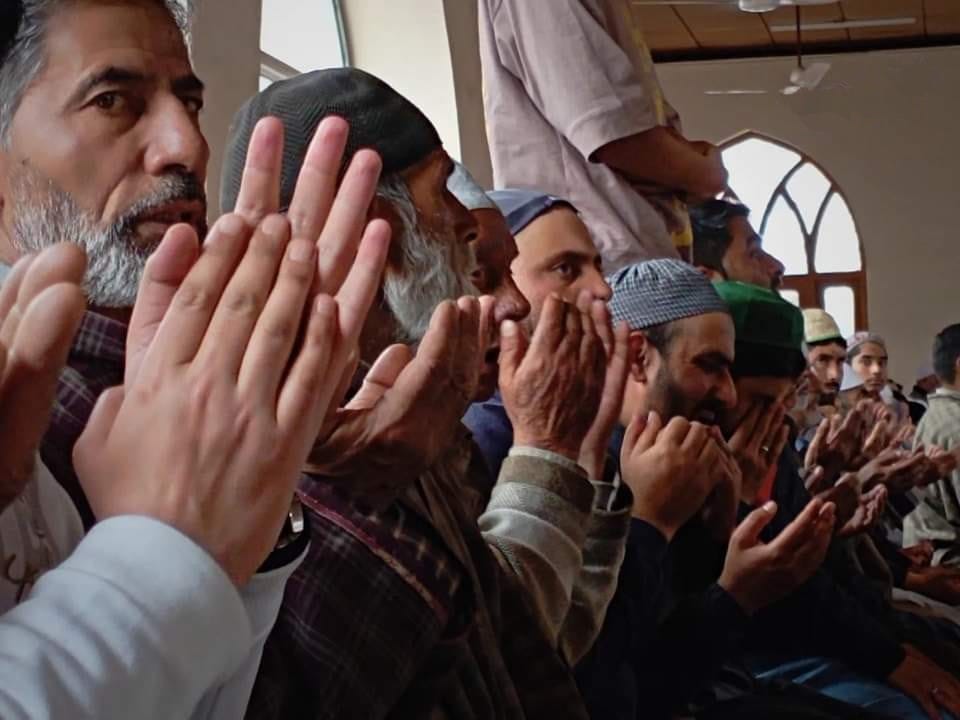
Sheikh Nadeem
Gripped by emotions, rural areas in the Kashmir Valley held special prayers for rain after Friday congregational prayers amid the ongoing heatwave across the region.
From vegetables and fruits to paddy crops, the vegetation has been severely affected due to rising temperatures. “Vegetables have developed never-before-seen pores, and within no time, the entire vegetation has been damaged due to the lack of precipitation,” said Ghulam Mohammed Dar, 61, from Shopian.
He was among hundreds of people who gathered in Zainapora, Shopian, after Friday prayers seeking an end to the dry spell.
Across the region, from Zainapora in Shopian to Anantnag’s main town, special prayers were held at least 20 locations and attended by tens of thousands of tearful eyes. Mirwaiz Umar Farooq also led special prayers for rain at Jamia masjid of Srinagar.
Locals told The Kashmiriyat that preachers across the rural belts of the valley sought forgiveness for sins and held meetings of repentance so that the Almighty may deliver Kashmiris from this challenging situation.
Several preachers made fervent appeals to the public to avoid cutting down trees and to protect the environment around them. “While some changes may be natural, we have inflicted significant damage on the balance of nature by cutting down countless trees, carving into mountains, and allowing our drains to flow into rivers. Allah surely does not approve of the destruction of the beautiful nature He has given us,” said Moulana Ramiz, addressing a gathering at Jamia Masjid Anantnag.
The Indian Meteorological Department has reported that the last week of July saw a deficit of over 85 percent in rainfall compared to the normal range for this time of year, causing anxiety among farmers for another year.
Paddy fields, especially in South Kashmir, have developed massive cracks and have gone completely dry. The situation has already triggered a massive price hike in Kashmir and may lead to a food crisis in the region.
Earnings from agriculture have decreased considerably in recent years, with the effects visible in almost every market in the valley. According to official estimates, more than 70 percent of the population is dependent on farming.
Several farmers have complained that the non-functionality of irrigation channels has also impacted their fields.




